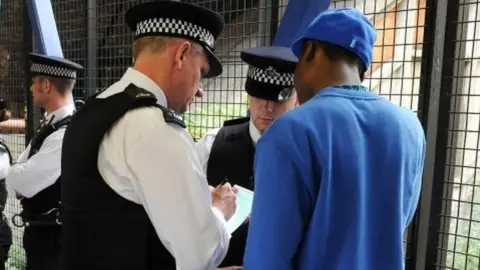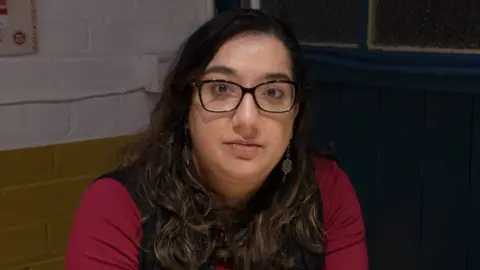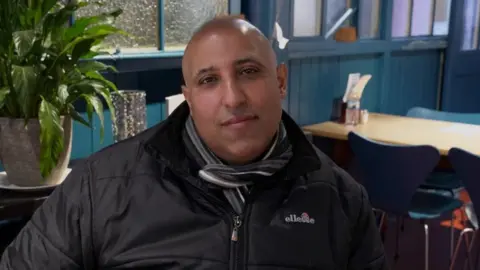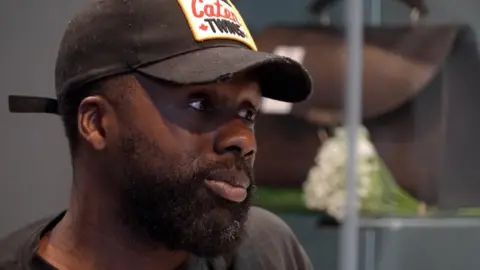Police powers reviewed under racial disparity plan
 PA Media
PA MediaThe government has set out its long-term vision to address racial disparities in the UK with changes to policing, health and education.
More than 70 measures are part of the new "Inclusive Britain" action plan.
It includes greater scrutiny over the way police use stop and search powers and improvements to how ethnicity data is collected.
Inclusive Britain has been developed in response to the Black Lives Matter protests in 2020.
That led to the establishment of a Commission on Race and Ethnic Disparities, which made a series of recommendations for reform, grouped under three key themes: building trust, promoting fairness, and creating agency.
The new measures include:
- A new, national framework for police powers, such as stop and search, with greater scrutiny at a local level
- An automatic "opt-in" pilot to help ethnic minorities and others receive legal advice when in police custody
- A new Office for Health Improvement and Disparities to improve health for everyone
- A diverse panel of historians to develop a new knowledge-rich Model History Curriculum by 2024, exploring Britain's historical past
- Guidance to employers on how to measure and address the ethnicity pay gap
Equalities Minister Kemi Badenoch MP said: "This is at the heart of our levelling up agenda. It's broader and more wide-ranging than any other review we've had into race and ethnicity in this country.
"The causes behind racial disparities are complex and often misunderstood.
"Our new strategy is about action, not rhetoric and will help create a country where a person's race, social or ethnic background is no barrier to achieving their ambitions."
However, Taiwo Owatemi MP, Labour's Shadow Equalities Minister, said the report failed to deliver meaningful action, and let down ethnic minority communities.
"The next Labour government will introduce a landmark Race Equality Act to tackle racial inequality at its source and deliver security, prosperity and respect to everyone regardless of their background."
The announcement builds on the Levelling Up White Paper published last month which aims to spread opportunity more equally across the country.

Inclusive Britain was officially presented to business leaders, charities and public figures in Birmingham.
Somia Bibi from Himaya Haven, a support group in Birmingham which helps families of loved ones in custody and prison, said racism is still a problem in some parts of the UK.
"Institutional racism comes in many forms, especially in the criminal justice system," she said.
"We find our family members are disproportionately from south Asian and black communities and if you look at the make-up of the prison system race is a factor."
But Naseam Kaid, a Streetwatch co-ordinator in Birmingham, believes good progress is being made.
"You see a lot of Asian and black officers around now, especially in my neighbourhood," he said.
"There's more diversity and better training in police work now."

Last year's independent commission was heavily criticised for playing down the impact of racism and systematic barriers facing ethnic minority communities.
And Halima Begum, chief executive of the Runnymede Trust, says the proposed changes don't go far enough.
"We welcome any measures which will begin to address racial and socio-economic disparities," she said.
"But we must not forget how much black and ethnic minority communities have suffered in the last two years as a result of Covid-19.
"We don't want to see the government giving with one hand to ethnic minority communities and taking away with the other, but instead action from the whole of government is needed to address racial disparities in our society."
Diversity lacking
Tru Powell, Director of the Aston Performing Arts Academy, says he's lost confidence in the government after a lifetime of personal and professional experiences of racism in the UK.

"I experienced racism in school and have been stopped and searched multiple times by police.
"These new measures seem like more empty promises. I feel like things are getting worse and we are regressing."
"I would like to think we're seeing change but I don't think it will happen in my lifetime."
His company recently decided to no longer perform at corporate events unless black people were in the audience to increase representation and inclusion in the arts.
"We've been performing for over 15 years across the Midlands but we've found that the diversity of those coming to see us is lacking.
The events we do celebrate the great and good in Birmingham but when there's a lack of representation in your room, it suggests black people aren't contributing to the city and we have a problem with that."
